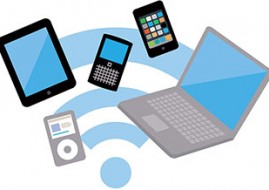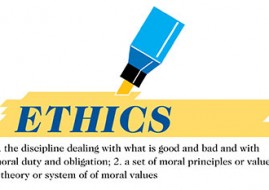ABA: Lawyers May Tape Their Conversations
By Sarah Diane McShea [Originally published in NYPRR November 2001]
In a move completely unrelated to the recent terrorist attack on lower Manhattan and Washington, D.C., the American Bar Association’s Committee on Ethics and Professional Responsibility recently reversed long-standing precedent and held that lawyers may ethically tape their conversations, with some caveats. ABA Formal Opinion 01-422, issued with little fanfare on the eve of the ABA Annual Meeting in Chicago in early August, held that the Model Rules do not proscribe a lawyer from taping his own conversations, provided the taping is not illegal in the relevant jurisdictions and the lawyer does not lie about whether the conversation is being taped, if asked about it.
The Ethics Committee was divided on the issue of whether a lawyer may tape conversations with a client, but it acknowledged that there were circumstances under which even the taping of clients would not be ethically barred. The ABA Committee withdrew Formal Opinion 337 (1974), which had held that lawyers could not ethically tape their conversations with others, with the “possible exception” of law enforcement personnel.
The ABA’s change of heart is likely to be well-received in many quarters, and not only because the recent catastrophe prompted many lawyers (and non-lawyers) to revise their views on how to strike a fair balance between individual rights and expectations and public security concerns. For many years, one of the chief arguments against surreptitious taping by lawyers has been that it violates our expectations of privacy and undermines our ability to hold candid discussions with others, including adversaries, on important issues. If lawyers routinely taped their conversations, the argument goes, it would create an atmosphere of suspicion and defensiveness that would make it all but impossible to practice law in a gentlemanly or effective manner.
Unfortunately, the recent attacks have created, at least for the time being, a charged atmosphere in which many lawyers are likely to reach very different conclusions about the importance of preserving what might be termed “old fashioned” professional niceties. And, judging from recent executive and legislative initiatives, local and national, the level of covert scrutiny that we will tolerate from others — and even expect for ourselves — is quite different today from what it was a month ago. One can hope that we will regain our equanimity and retain our tradition of preserving individual rights, even if at some risk to our daily personal security. In the meantime, in the raw aftermath of the recent tragedy, the ABA’s willingness to approve surreptitious taping by lawyers is not likely to generate as much controversy or opposition as it might have even a short time ago.
As Opinion 01-422 notes, numerous commentators and jurisdictions disagreed with the ABA’s former opposition to taping, concluding that “surreptitious taping” by lawyers is not forbidden by either the Model Rules or the Code of Professional Responsibility. Indeed, the change in the national consensus is one of the primary stated reasons for the ABA’s reversal. Opposition to lawyer taping rested on the tautological conclusion that surreptitious taping involved “dishonesty, fraud, deceit or misrepresentation.” It was said that people expected that their conversations would not be taped and therefore taping without prior disclosure of the taping was inherently misleading and deceptive. As many bar association committees have since held, that expectation no longer exists.
Many people are able to (and do) press a button on their home or office answering machines and tape their own conversations. Many businesses now routinely record their customers or clients, although the recording is usually preceded by an announcement that calls will be monitored for “training purposes” or “quality control.” Moreover, as Opinion 01-422 notes, surreptitious taping is a “widespread practice by law enforcement, private investigators and journalists, and the courts universally accept evidence acquired by such techniques.” Sadly, the expectation that our conversations will not be recorded is a casualty of the technological ease with which they may be recorded and the frequency with which they are recorded.
Another reason given by the ABA Committee for abolishing the ethical ban on lawyer taping is that the rule had been significantly eroded by numerous exceptions. Many jurisdictions permit a lawyer to tape a witness’s statements — to “keep the witness honest” and avoid perjury in subsequent testimony. Many jurisdictions permit taping by criminal defense lawyers, to “level the playing ground” with prosecutors, who would otherwise have a grossly unfair advantage. Others permit lawyers to tape to protect themselves or to obtain evidence of criminal conduct (e.g., threats by an adversary against the lawyer or her client). Finally, surreptitious taping has generally been permitted in civil rights and patent and trademark infringement cases. According to the ABA’s Ethics Committee, the numerous exceptions created such uncertainty about the scope of the taping ban that lawyers were left without meaningful guidance in determining what is proper professional conduct.
In permitting lawyers to record their conversations with others, the Committee made clear that a lawyer may not lie when asked whether the conversation is being recorded. Withholding the truth about the taping would violate both the Model Rules and the Code of Professional Responsibility, which proscribe conduct involving misrepresentation, fraud, deceit or dishonesty. Either a direct lie or avoidance of the question would implicate the lawyer in unethical conduct.
Significantly, the ABA Ethics Committee was unable to agree on whether lawyers could ethically tape their own clients. The Committee agreed that, with few exceptions, if a lawyer contemplates taping a client, the client should be advised in advance of the possibility that conversations with the lawyer will be taped. The fiduciary relationship between lawyer and client requires that the lawyer not act in a way that may harm the client in the future. Quite obviously, taping a client’s conversations is potentially harmful or detrimental to the client. The exceptions to this would include circumstances in which the client has acted in such a manner as to effectively rupture the relationship of trust and loyalty between lawyer and client. A lawyer may certainly tape a client who has threatened to harm the lawyer or others, either personally or professionally.
ABA Formal Opinion 01-422 reflects the changed landscape of our professional and civilian lives, which have been significantly altered by our increasing use of sophisticated and invasive technologies and our decreased expectations of privacy and confidentiality. The Ethics Committee wisely amended its guidance for lawyers, who ought to be permitted to act reasonably on their clients’ behalf, without unnecessary or antiquated professional restrictions. That said, it is often inadvisable to tape conversations, even when one is permitted to do so. Recordings, once created, have a life of their own and the risks of creating such compelling evidence may often outweigh the potential benefits. The prudent practitioner will rarely tape a conversation, and then only when it is crucial to the effective and zealous representation of the client.
Given the ABA’s reconsideration of its long-held opposition to lawyer taping, it is now incumbent upon the state and local bar associations in New York to reach consensus on this important issue. By way of historical background, in 1974, the New York State Bar Association held that, except in special circumstances, it was improper for a lawyer to tape a conversation with another lawyer or person. [State Bar Opinion 328.] In 1979, the State Bar clarified its opinion sufficiently to permit a lawyer, under some circumstances, to counsel a client who proposed to record a conversation with another person. [State Bar Opinion 515.] In 1980, the Association of the Bar of the City of New York opined that while it was generally unethical for a lawyer to record conversations (because it is deceitful and deceptive conduct), criminal defense attorneys could tape their interviews with potential witnesses. [City Bar Opinion 80-95.]
In 1993, the New York County Lawyers’ Association held that the ethical ban on lawyer taping was outdated and no longer viable. In Opinion 696, the County Lawyers’ Ethics Committee held that there was nothing inherently unethical about a lawyer’s recording his or her own conversations. There was considerable local controversy at the time and other New York bar associations and many prominent practitioners were either critical or silent. In 1995, the City Bar issued Formal Opinion 1995-10 holding that it is unethical for one lawyer to record telephone or in-person conversations with an adversary attorney without advising that attorney of the taping. The City Bar specifically rejected the County Lawyers Opinion 696, as well as similar opinions from several other jurisdictions.
This is a rather unsatisfactory state of affairs for lawyers seeking advice about what is ethically permitted in New York. The bar associations in New York should revisit their opposition to lawyer taping in light of the ABA’s new opinion and hopefully reach a consensus that will provide reasonable and consistent guidance for ethically-minded New York lawyers.
One final note of caution for lawyers who do record their conversations with others. The federal Wiretap Act (18 U.S.C. §§2510 et seq.) bans the possession of certain electronic devices, even for legitimate purposes. It is a felony to manufacture, sell or possess any device if the “design” of the device makes it “primarily useful … for the surreptitious interception of wire, oral or electronic communications.” Thus, even if it is legal and ethical to record a conversation, you may not use devices like martini-olive or micro-telephone transmitters, although you may use a standard dictating machine or an answering machine with recording capability.
Sarah Diane McShea represents lawyers and law firms in legal ethics and professional discipline matters.
DISCLAIMER: This article provides general coverage of its subject area and is presented to the reader for informational purposes only with the understanding that the laws governing legal ethics and professional responsibility are always changing. The information in this article is not a substitute for legal advice and may not be suitable in a particular situation. Consult your attorney for legal advice. New York Legal Ethics Reporter provides this article with the understanding that neither New York Legal Ethics Reporter LLC, nor Frankfurt Kurnit Klein & Selz, nor Hofstra University, nor their representatives, nor any of the authors are engaged herein in rendering legal advice. New York Legal Ethics Reporter LLC, Frankfurt Kurnit Klein & Selz, Hofstra University, their representatives, and the authors shall not be liable for any damages resulting from any error, inaccuracy, or omission.
Related Posts
« Working Under New Rules on Multidisciplinary Practice Conflicts of Interest Under New DR 1-106 »












